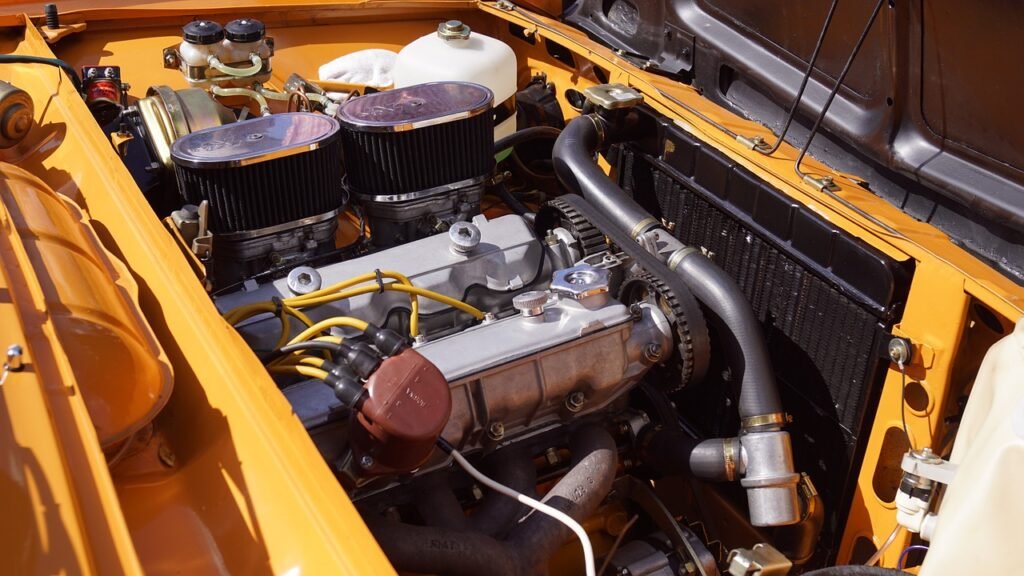If the air filter is dirty or clogged, the engine will face loss of power and fuel efficiency. Best of all, the task is quite simple and would take you only a few minutes to do. Your money, labor-wise, and time are quite safe, not to mention the flow of air in the engine.
Changing the air filter regularly is one of the easiest yet most efficient methods of keeping your car in very good shape.

This guide will show you just how simple the task is to replace your air filter.With a basic socket set and less than an hour, your car’s performance will be improved as well as efficiency will be kept in check.
Reasons to Change Your Car’s Air Filter
For proper fuel-burning and power generation, an engine requires air in vast quantities. This means that when the air filter is clogged or really dirty, it restricts air coming through providing inadequate oxygen to the engine. Such conditions will lead to hesitation in acceleration or sluggishness, loss of power, and reduced fuel efficiency.
This condition has direct results-instant, your car will feel as though it’s being dragged and will have no power at all.
Long-Term Damage
Serious harm to the engine can be done if the air filter is not cleaned. The eventual dirt and debris that circumvent the filter find their way to some of the key components of your engine, causing abnormal oil consumption and oil leakage: pistons, cylinder rings, and bearings. Dirt particles cause a sandpaper effect in your engine.
Regular changing of the air filter helps prevent this situation from ever forming, keeping the engine healthy and running smooth and efficient.
Replacement of a Clogged Air Filter-Why This is Important
Once you install a new air filter, the changes are almost immediate: an easier-breathing engine leading to improved horsepower, smoother acceleration, and better fuel economy. Some estimates state that improvement in mileage could be as much as 10%.
This means installing a new filter is worth it; you can save a little at the pump now and get away from some expensive repairs later.
Air Filter: The Replacement Frequency
Replacement of engine air filter is mostly recommended by automobile manufacturers after every 12,000-15,000 miles or so, but often, in stop-and-go traffic, dirt, or off-road conditions, more frequent replacement may be necessary.
Since filters can get rendered useless in a short time under bad driving conditions, it’s best to always check their condition more often if you’re in a bad environment.
Do Your Own Check on the Air Filter
One of the easiest ways to inspect the air filter for replacement is when you change your oil or during any routine under-the-hood work. Just remove the filter and hold it up to a bright light. If the light visible through the filter is very faint, or if you notice some debris buildup, it’s time for a new one.
Touching the filter is another way to assess its health. Healthy filters will feel springy and resilient, while older filters will feel more rigid or even brittle. Collapsing pleats or any tears or holes mean it’s definitely time for a replacement.
While checking the filter, also examine the filter housing for dirt buildup. If dirt is getting inside the housing, that means particles are bypassing the filter. This is an indicator that the filter must be replaced.
How Changing Your Air Filter Improves Performance
A dirty air filter will definitely rob your car of much less than a fresh one. The engine will run smoother, the car will get better acceleration, and fuel economy will improve due to a fresh air filter.
A clean, breathable engine offers better efficiency. You’ll notice better horsepower, faster acceleration, and maybe slight elevation of fuel economy. Some drivers have stated an increase of 10 percent in gas mileage after changing air filters.
While more air helps the engine run smoother, wear and tear on some main engine components such as cylinders, pistons, and bearings will be lessened. This further checks against potential oil leaks and will allow your oxygen sensors to work better.
Why Clean Air Filters are Important
Air filters are essential in protecting sensitive engine components within it. With a clean air filter in place, those harmful particles are kept from entering, thus restricting any unnecessary damage to the functioning parts that rely on precise tolerances to operate.
A dirty air filter causes the entrance of dirt and debris into the engine, leading to eventual wear and problems, including oil leaks. Regularly changing the filter keeps the engine running smooth, lasts longer, and is more efficient.
Dirty Air Filter Effects
A subsequent increase in performance can be perceived because a clogged filter is markedly restrictive in terms of airflow to the engine. When your car feels sluggish in the manifestation of acceleration or when merging onto highways, you know that poor airflow is terminally damaging further important parts of the engine, causing repairs that would cause a dent in your pocket later.
With a dirty filter replaced, your engine will start to breathe again, allowing sudden bursts of acceleration, smooth idling, and overall performance improvements.Delay not, for the very existence of your engine’s well-being may come under such grievous threat from procrastination.
Conclusion
Changing an air filter is one of the simplest yet most effective ways to improve engine performance. Clogged air filters can hinder acceleration response and fuel economy, eventually leading up to engine failure in the long run.
Regular replacement of the air filter should enhance horsepower, torque, and fuel economy, as well as avoid costly repairs forever. This maintenance task is so simple but keeps the engine breathing free and working at its best and can help extend the life of other key engine parts.

